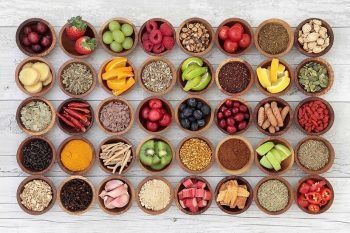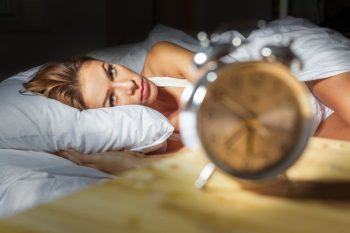Update on Integrative-Based Research
Dietary Polyphenol Intake and Depression: Results from the Mediterranean Healthy Eating, Lifestyle and Aging (MEAL) Study

In this study, the dietary characteristics of over 1500 adults living in southern Italy were analysed. A total of 509 individuals reported having depressive symptoms. Based on the analyses, total polyphenol intake (found in plant foods) was NOT associated with depressive symptoms. However, higher intakes of phenolic acid (found in mangos, berries, apples, citrus fruits, plums, cherries, kiwis, onions, tea, coffee, and red wine), flavanones (commonly found in citrus fruit), and anthocyanins (found in black raspberries, blueberries, blackberries, red cabbage, and raspberries) were associated with a reduced risk of depressive symptoms. When taking into consideration the major sources of the polyphenols, only citrus fruits, and wine consumption was inversely associated with depressive symptoms. Good news for wine drinkers… although more is not necessarily better!
The SSRI citalopram increases the sensitivity of the human circadian system to light in an acute dose

Disturbances in the circadian system are common in depression. In this study, the effect of the antidepressant citalopram on the circadian rhythm to light was investigated. This study used a double-blind, placebo-controlled, crossover design where volunteers took a single dose of citalopram or a placebo. Levels of the sleep-inducing hormone, melatonin was then measured at room light level.
The researchers found citalopram significantly lowered melatonin levels (a 47% decrease in melatonin suppression) compared to the placebo. This study suggests that citalopram increases our sensitivity to light. This may be helpful for people who expose themselves to light during the day as it may restore the hormonal circadian rhythm. However, it could pose a significant problem for people who are exposed to light in the evening, as it may lower melatonin levels, potentially impairing sleep. People who are using their phone or computer at night, have televisions in their bedroom, etc are at risk. It is therefore important to remind people (particularly on antidepressants), to lower light exposure in the evening … and get off their phones!
Effect of caloric restriction on depression

Both animal and human studies have shown that caloric restriction may increase longevity, memory, quality of life and may reduce risk factors for neurodegenerative and psychiatric diseases including depression. In this paper, the authors review some ways caloric restriction may have antidepressant effects. These include supporting neurogenesis by increasing the neurotrophin BDNF, reducing free radical production, and lowering inflammation. While further human-based research is necessary, it provides further support for the mood-food connection.
Impact of air pollution on depression and suicide

In this review article, the authors reported that numerous studies confirm a relationship between air pollution and higher prevalence of depressive disorders and suicides. They report that air pollution may affect the central nervous system in many ways, including neuropathic inflammation, oxidative stress, and damage to blood vessels. Particulate matter may be transported through the bloodstream and directly through the olfactory pathway to the brain. These compounds induce a pro-inflammatory response leading to pathological neurological changes.
